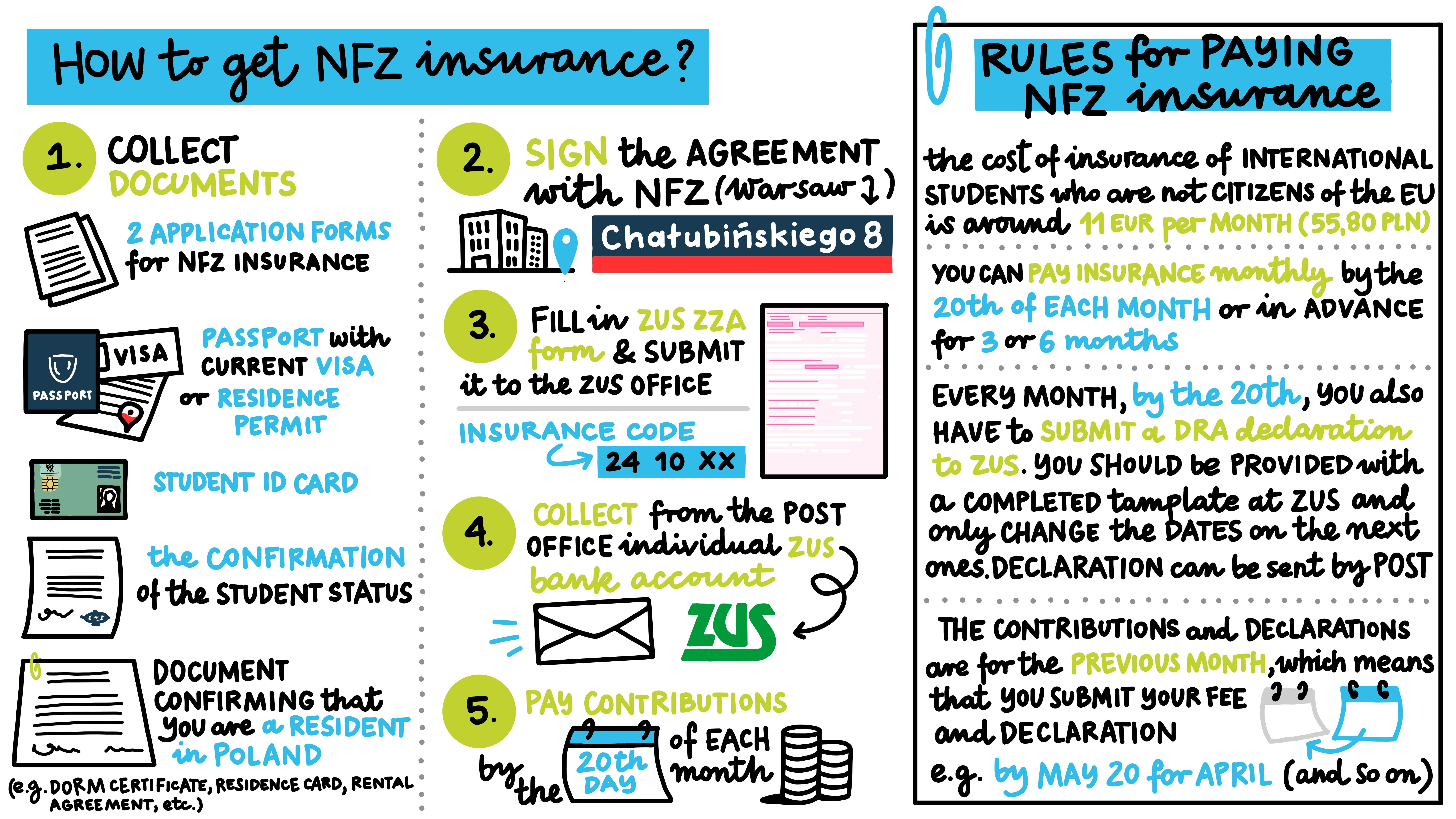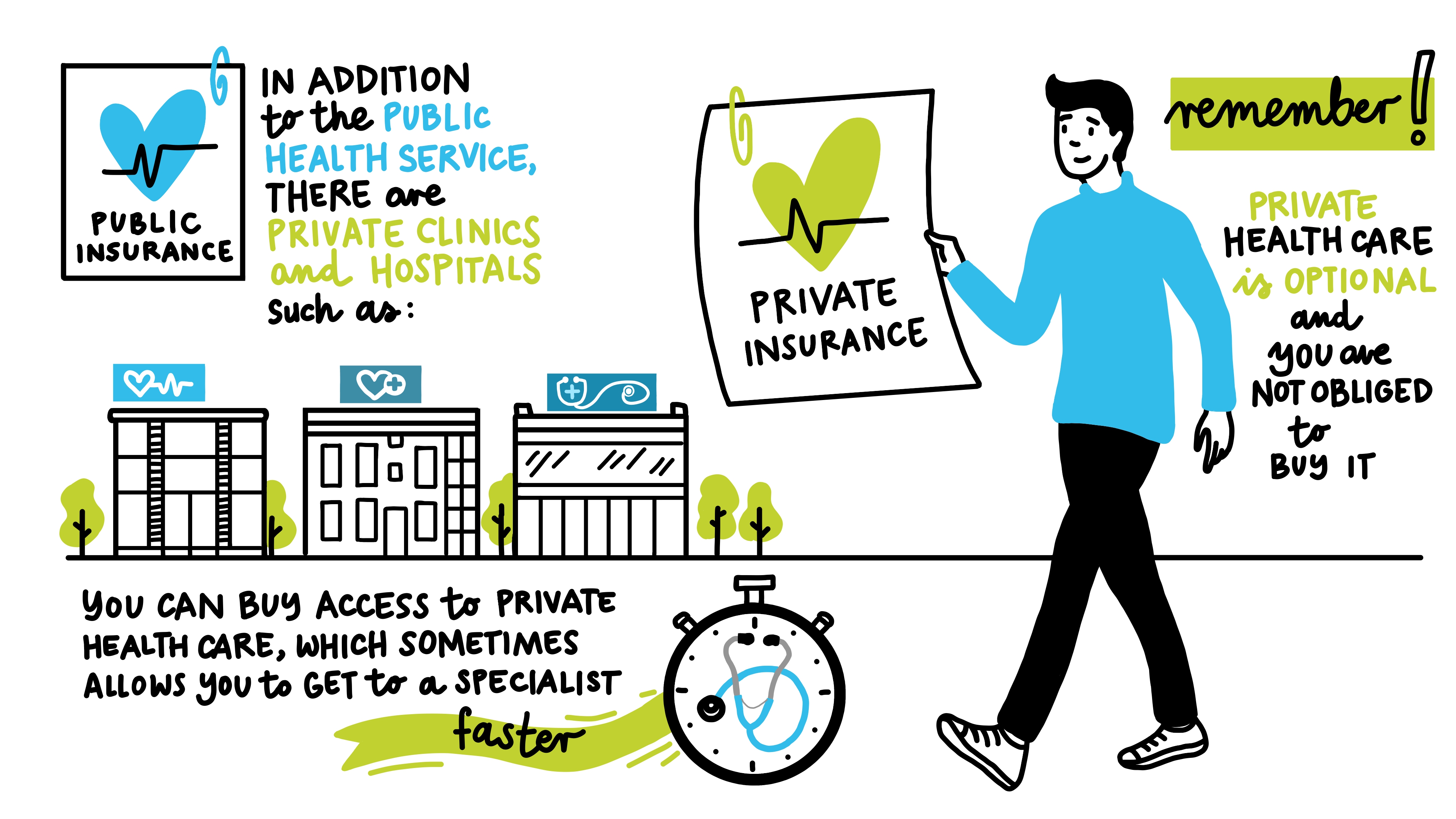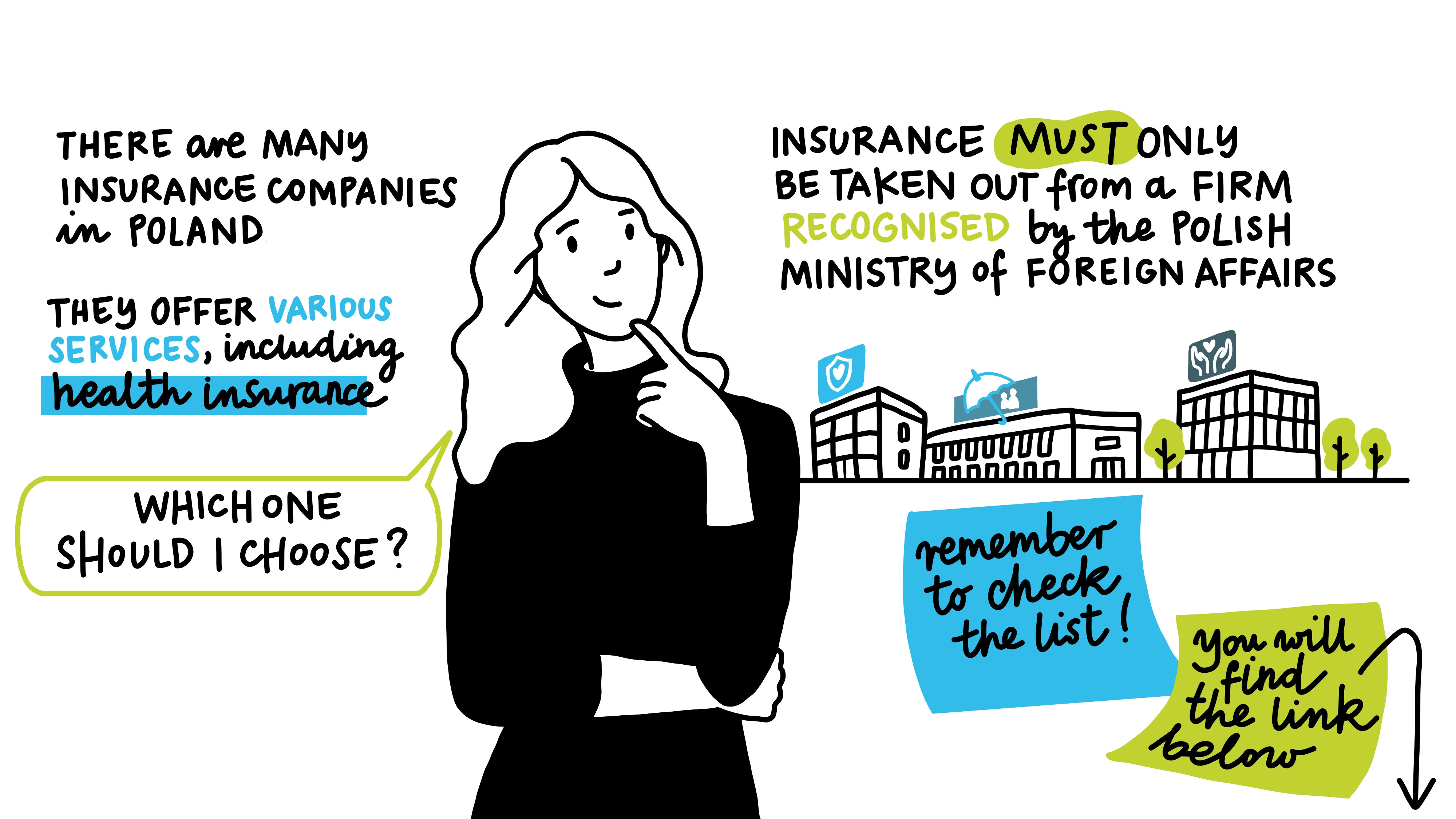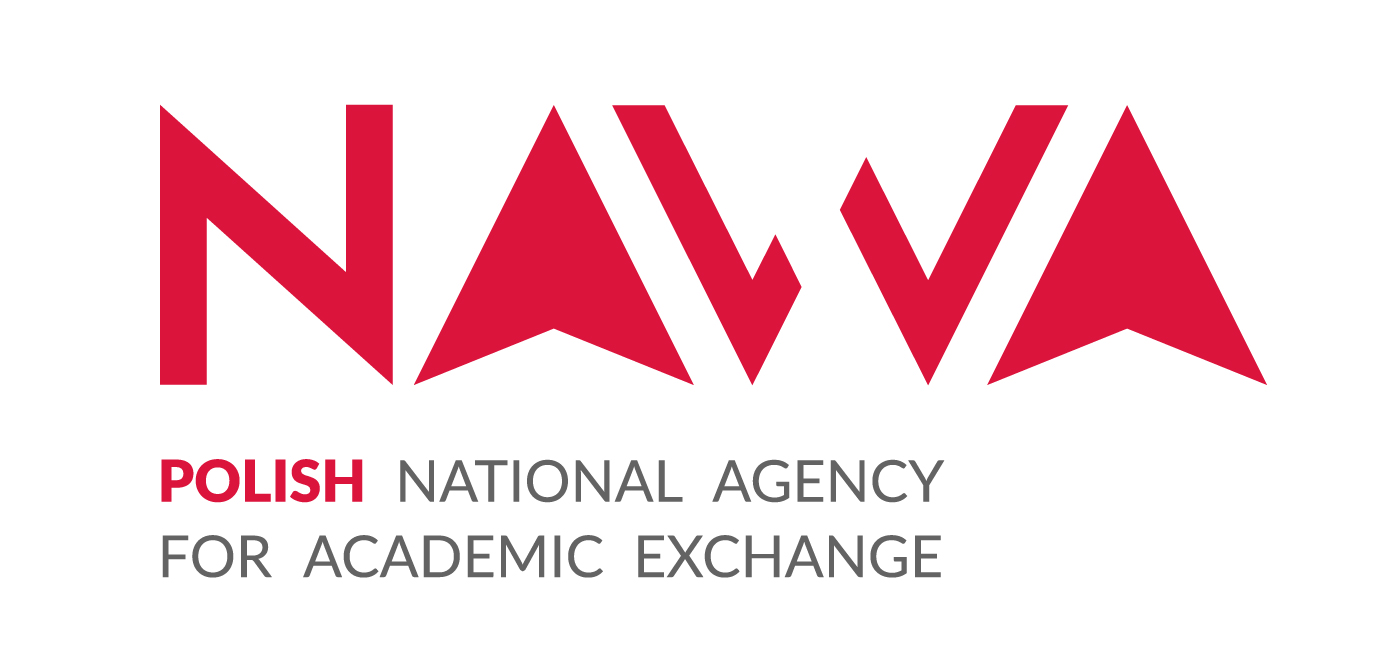Insurance
The health insurance system in Poland is based on principles of equal treatment and access to healthcare services.
National Health Fund (Narodowy Fundusz Zdrowia; NFZ) is the institution responsible for public medical
services in Poland, and it is they who manage public funds for healthcare.
Health insurance is mandatory for all students for the whole duration of their stay in Poland. It is important to remember that each student coming to the University of Warsaw for short-term studies will be asked to show proof of health insurance upon arrival.
International students and academics are strongly advised to purchase third-party liability insurance and accident insurance in their home countries.
Are you an EU citizen?
EU citizens are eligible for free health services in Poland, providing that they present a valid European Health Insurance Card.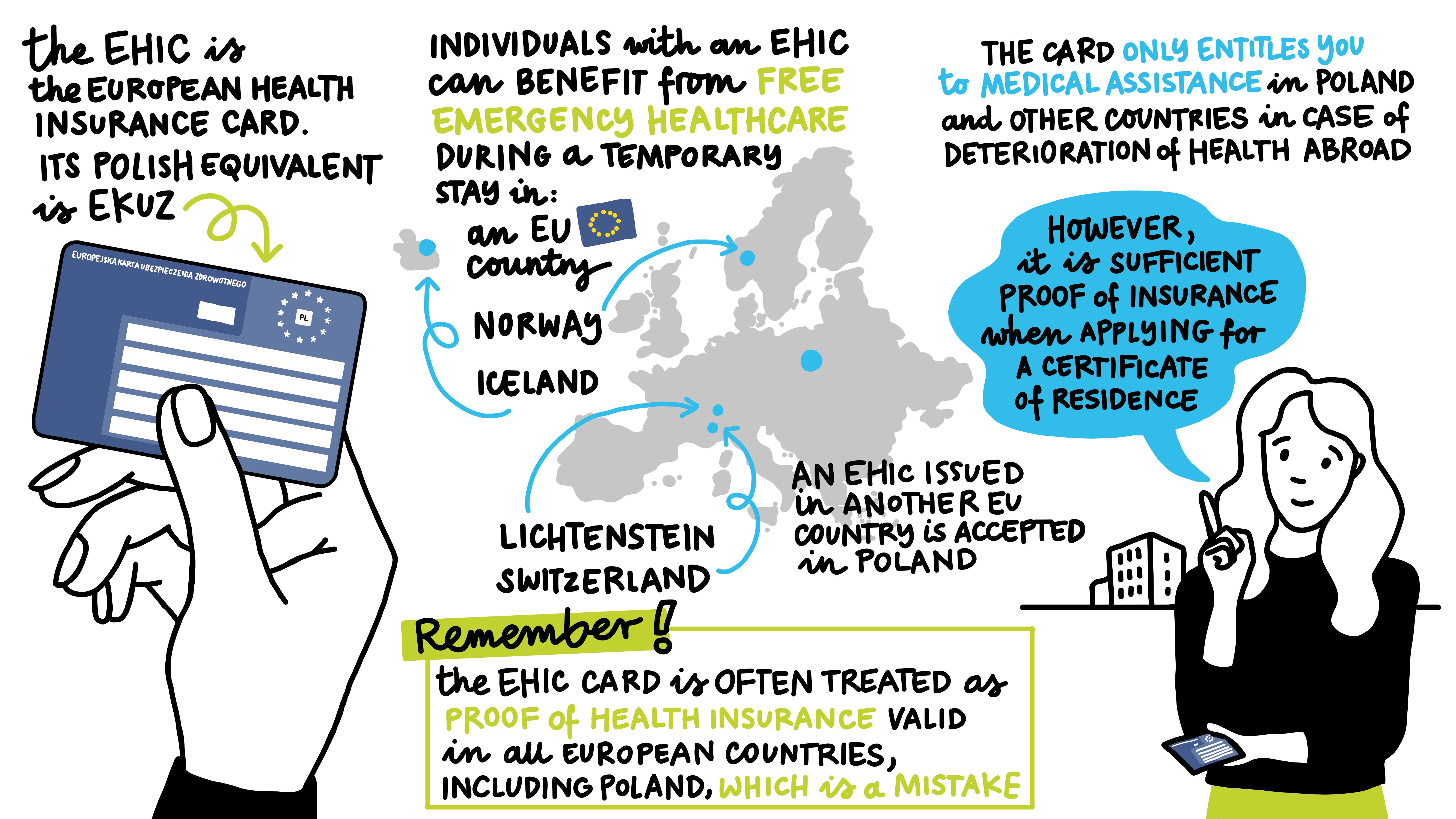
![]()
EU citizens without health insurance in their countries of residence and non-EU citizens can sign a health insurance agreement with the National Health Fund (NFZ — Narodowy Fundusz Zdrowia) or with one of the private clinics.
Are you a non-EU citizen?
You can sign the insurance agreement with the National Health Fund and pay monthly contributions to the NFZ.
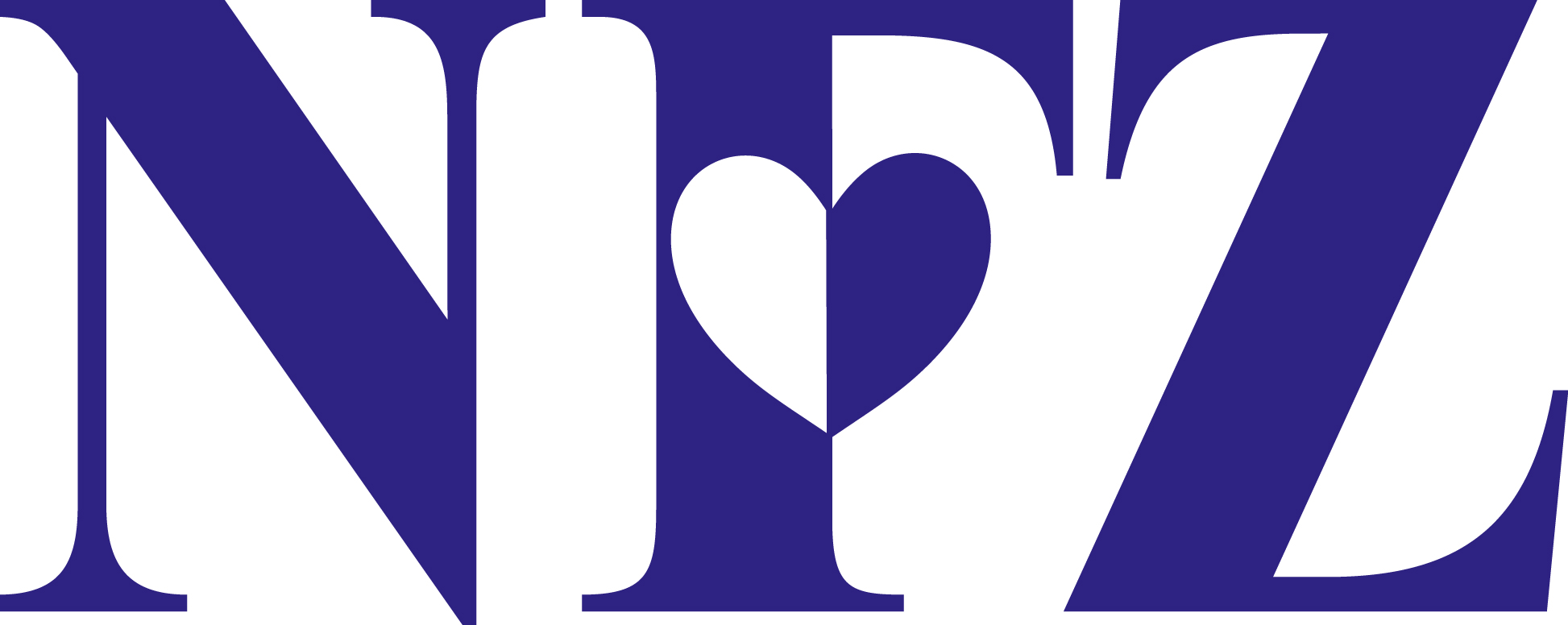
Do you have the Pole’s CARD (Karta Polaka) or Polish descent confirmed by a Consulate?
If yes, you are entitled to be insured by the University on the Polish Government cost.
To be insured, you have to sign a contract with the National Health Fund (NFZ – Narodowy Fundusz Zdrowia) and submit a copy of the contract to the Student Welfare and Support Office along with:
- the application form (printed, filled in and signed),
- a copy of the Pole’s Card or certificate of the Polish origin,
- confirmation of student status (issued by the student’s office of the faculty)
If you are a non-EU citizen who has neither the Pole’s Card nor a Polish descent, you are also obliged to have insurance during the whole duration of your stay in Poland. Otherwise, you will be obliged to pay for all health services on your own.
Note that relevant bilateral inter-government agreements may influence one’s status in Poland regarding health care issues. For example, citizens of Albania, Bosnia and Herzegovina, Montenegro, Russia, and Serbia have the right to free medical services in case of emergency.
You can insure yourself either in NFZ or in one of numerous private insurance companies.
How can I get NFZ insurance?
- Step 1. Documents which you need:
— 2 application forms for National Health Fund health insurance (PDF) cover from here
— your passport with a current visa or residence permit
— your Student ID Card,
— the confirmation of the student status (issued by the student office of your faculty)
— a document confirming that you are resident in Poland (e.g. dorm certificate, residence card, rental agreement, etc.)
- Step 2. Go to the National Health Fund (NFZ — Narodowy Fundusz Zdrowia) at (Chałubińskiego 8, 00-613 Warszawa) in the main hall where you can sign the ageement with the NFZ.
- Step 3. Fill in the ZUS ZZA form (PDF) (with the insurance code 24 10 XX), and submit it to an appropriate Polish Social Insurance Institution (ZUS) branch or inspectorate.
The form can be printed and delivered in person, or sent by post to the branch or the Polish Social Insurance Institution (ZUS) inspectorate in the competent district. The cost of insurance for international students who are not citizens of the EU is around 11 EUR per month (c. 55,80 PLN).
It is possible to pay health insurance for 3 months in advance. If this is the case, remember to submit the ZUS DRA declarations for 3 months to the nearest ZUS office. This is recommended for those applying for a temporary residence permit. The insurance must be valid for the entire period of stay in Poland, as well as during the submission of documents in legalisation proceedings. Declarations can be submitted in person at a ZUS office, after paying for insurance (by the 20th of the month), or via ePUAP platform (To set up an online account for administrative matters, you require a PESEL number. Instructions on how to obtain it are available at our website).
Useful addresses:
Dormitory no 1 “Muchomorek” ⇒ Ochota City Hall at Grójecka 17a, 02-021 Warsaw
Dormitory no 2 “Żwirek” ⇒ Ochota City Hall at Grójecka 17a, 02-021 Warsaw
Dormitory no 3 “Kic” ⇒ Praga Południe City Hall at Grochowska 274, 03-841 Warsaw
Dormitory no 4 “Zamenhof” ⇒ Śródmieście City Hall at Nowogrodzka 43, 00-691 Warsaw
Dormitory no 5 “Smyczkowa” ⇒ Mokotów City Hall at ul. Rakowiecka 25/27
02-517 Warsaw
Dormitory no 6 “Radomska” ⇒ Ochota City Hall at Grójecka 17a, 02-021 Warsaw
ZUS I Branch in Warsaw (for Śródmieście) – Senatorska 6/8 Street , 00-917 Warsaw
ZUS II Branch in Warsaw (for Praga-Południe, Rembertów, Wawer, Wesoła) – Podskarbińska 25 Street, 03-829 Warsaw
ZUS III Branch in Warsaw (for Mokotów, Wilanów) – Czerniakowska 16 Street, 00-701 Warsaw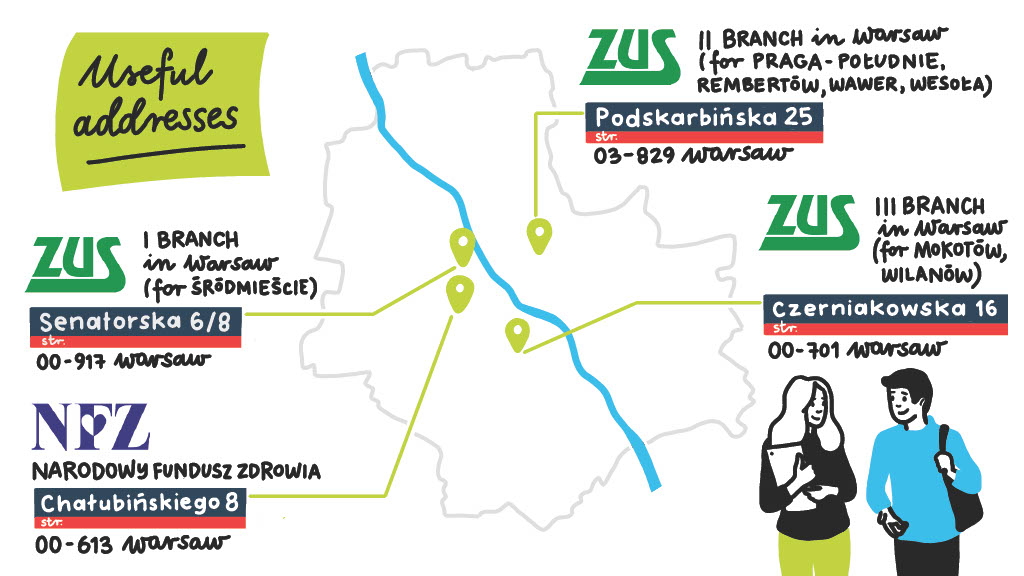
![]()
National Health Fund (NFZ)
Polish Social Insurance Institution (ZUS)
List of state hospitals (only in Polish)
Detailed information on healthcare in Poland for citizens of EU/EEA member states
Please note that you don’t need a PESEL number to get NFZ insurance. However, it still might be useful as this is a unique identification number for all Polish citizens and many residents, so we highly recommend applying for it.
Private insurance
You can decide to insure yourself privately. But you have to remember that private insurance policies do not provide the same equal access to medical services that you can expect from public coverage.
Limitations of private insurance are set by the policy you decide on. You can choose a cheap one where you have access only to basic services, such as visits to a general practitioner and some specialist doctors. On the other hand, if you decide on more expensive services, they will most probably include more advanced options, e.g.: hospitalisation, operations, giving birth etc.
Also, please, remember that private companies often set so-called delay periods, which means that patients have access to certain services only after a longer period of paying the insurance contribution (e.g. 60 days).
That is why we strongly recommend that you obtain public insurance from the National Health Fund.
For more info, please, visit this website.


